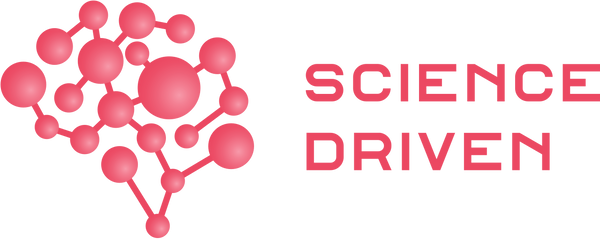
The Dunning-Kruger effect
Mike MunayShare
-Doctor, you don't need to order tests. I already know what I have; I looked it up on Google.
Martha said, convinced in front of the doctor.
She was sure her abdominal pain was the result of a food intolerance. She had read about it on several forums, and the description matched what she was feeling perfectly. The doctor calmly ordered additional tests. She insisted, "It's not necessary; I already know what's wrong with me."
A few days later, when the results came in, she was diagnosed with an autoimmune disease that was causing those symptoms. Far from acknowledging her arrogance, she argues that the disease had erupted precisely because her initial diagnosis was ignored, which led to the second illness.
Elsewhere in the city, Albert was waving some graph papers in a coffee shop, surrounded by friends.
–The market is going to rise, that's obvious. You just have to invest now.
Albert spoke with the confidence of an expert. He had read two investment blogs and watched The Wolf of Wall Street several times. When his friends hesitated, he insisted:
-If you don't, you'll miss the opportunity of a lifetime.
Three months later, his savings had disappeared in a stock market crash. His conclusion: the strategy was correct, but it didn't work because people ignored him and didn't enter at the right time for the upswing. The stock market had plummeted, but his arrogance hadn't.
Jane, on the other hand, worked at a marketing agency. She had only been in the industry for a year when she began to question the work of veterans.
-The redesign of that famous company's logo is a scam. Considering the cost, they could have done a much better job than changing the color and moving two lines.
She convinced the team to lead the redesign of an established client's visual identity, changing fonts, colors, and slogans. She was convinced it would "revolutionize the brand" and attract new customers. The result was devastating: loss of recognition, complaints from loyal customers, and declining sales.
Jane's explanation was simple and arrogant like the other cases:
-The thing is, the public still doesn't understand the value of my proposal.
Three different stories, the same pattern: people with little experience convinced they have the absolute truth. And the most disturbing thing is that the less they know, the more certain they seem. The most dangerous thing is that ignorance itself prevents us from seeing how little we know.
Does this sound familiar?
That mirage has a name: the Dunning-Kruger effect.
The Dunning-Kruger effect
The Dunning-Kruger Effect is a cognitive bias that describes how people with low skill or knowledge in an area tend to overestimate their competence, while those with high skill often underestimate it.
Origin of the term
It was described in 1999 by psychologists David Dunning and Justin Kruger of Cornell University. The trigger was a case as unusual as it was revealing: McArthur Wheeler, a man who tried to rob a bank by smearing lemon juice on his face, convinced that this would make him invisible to security cameras.
The original experiment
Dunning and Kruger gave university students logic, grammar, and humor tests and asked them to evaluate their own performance. The results were clear:
- The lowest-scoring students believed themselves to be above average.
- The top scorers tended to undervalue themselves.
The finding was devastating: incompetence not only generates errors, but also prevents them from being recognized .
The knowledge curve
The phenomenon is usually represented by the confidence versus knowledge curve:
- Mount Stupidity: Overconfidence after superficial learning.
- Valley of humility: the awareness of one's own ignorance.
- Pending knowledge: the slow, realistic advance toward true competence.
Real cases
🎓 Education
Students with lower academic performance overestimate their expected grades, while the best tend to doubt themselves. You've probably heard the hard-working student say, "The teacher has a thing about me because I know more than him," or the opposite: "I think I'm going to fail," but he ends up getting an 8.
🏥 Medicine
The phenomenon appears in the self-perception of patients who, after reading information on the internet, question medical diagnoses with a certainty that bears no relation to their actual knowledge. This is a daily occurrence in healthcare professionals' offices.
💼 Work and leadership
In business, bias explains how incompetent individuals rise to positions of responsibility: their overconfidence is mistaken for leadership and ability. The world of middle managers whose contributions and why they got there are unknown.
🌐 Social networks
In the digital age, the Dunning-Kruger theory is amplified: influencers opining on the global economy without any education, flat-earthers with surreal "proof" and absurd reasoning, untrained health gurus who amass millions of followers, and nutritionists who learned at the gym what's best for each body and impose their "knowledge" with absolutist messages and insults on anyone who dares to disagree with them.
🗳️ Politics
In politics, the phenomenon is especially dangerous. Politicians without technical training in economics, science, health, or international relations make sweeping judgments and design policies that affect millions of people.
Policies based on ideological packages that are carried out without thinking and never based on proven scientific reasoning, because, paradoxically, such unqualified certainty convinces the electorate more than the prudent discourse of experts who recognize the complexity of the problems.
Conclusions
- Ignorance inflates confidence.
- Real knowledge often breeds humility.
- We are all vulnerable to bias in areas we are not proficient in.
- The greatest danger is not not knowing, but not knowing that we don't know.
- People are more convinced by the self-confidence of an ignoramus than by the knowledge of an expert.
Final reflection
The Dunning-Kruger Effect is more than a psychological bias: it's a social reflex. Today, we live surrounded by voices that speak with confidence but lack knowledge. The digital age amplifies this phenomenon, rewarding absolute confidence over thoughtful prudence.
Meanwhile, true experts, aware of the limitations of their disciplines, express themselves with nuance and caution. And in a world that idolizes certainty in discourse, such caution sounds weak.
The challenge is to learn to distinguish between noise and the authoritative voice, between the arrogance of ignorance and the serenity of wisdom.
Three quotes to think and reflect on the world around us and our own self-perception;
"Recognizing what we don't know is the first step toward knowledge."
Socrates
"We are all very ignorant. What happens is that not all ignore the same things"
Albert Einstein
"Never argue with ignorant people, they will drag you down to their level and then beat you with experience."
Mark Twain
References
Dunning, D., & Kruger, J. (1999). Unskilled and unaware of it: How difficulties in recognizing one’s own incompetence lead to inflated self-assessments. Journal of Personality and Social Psychology, 77(6), 1121–1134. https://doi.org/10.1037/0022-3514.77.6.1121
Ehrlinger, J., Johnson, K., Banner, M., Dunning, D., & Kruger, J. (2008). Why the unskilled are unaware: Further explorations of (absent) self-insight among the incompetent. Organizational Behavior and Human Decision Processes, 105(2), 98–121. https://doi.org/10.1016/j.obhdp.2007.05.002
Kruger, J., & Dunning, D. (2002). Unskilled and unaware—But why? A reply to Krueger and Mueller (2002). Journal of Personality and Social Psychology, 82(2), 189–192. https://doi.org/10.1037/0022-3514.82.2.189
Pennycook, G., & Rand, D. G. (2019). Lazy, not biased: Susceptibility to partisan fake news is better explained by lack of reasoning than by motivated reasoning. Cognition, 188, 39–50. https://doi.org/10.1016/j.cognition.2018.06.011

1 comment
Realista ,da qué pensar … muy claro y conciso .